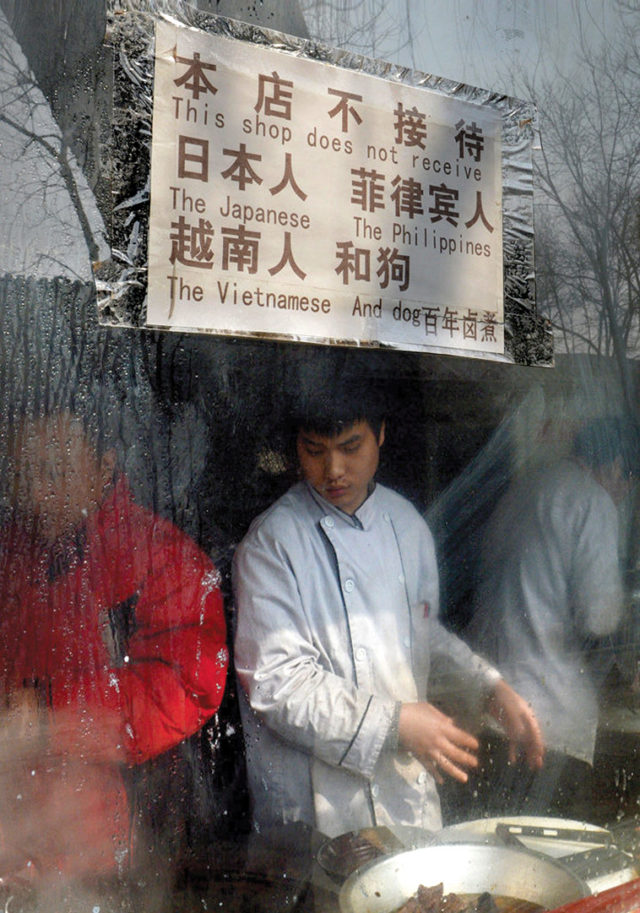
Beijing restaurant sign reading ‘This shop does not receive The Japanese The Philippines The Vietnamese And dog’.
Source: Tianya.cn
‘This shop does not receive The Japanese The Philippines The Vietnamese And dog’, reads the English translation of a sign in the window of a restaurant serving Beijing-style stewed pig offal in the city’s popular Houhai tourist area. A photo of the bilingual sign posted on Facebook on 22 February 2013 by Rose Tang — a New York-based painter and writer — went viral on China’s social media platforms and sparked a debate over how patriotism should be expressed in China today. The sign was reminiscent of the infamous notice ‘Chinese and Dogs Not Admitted’ (Huaren yu gou bu de ru nei 华人与狗不得入内) allegedly posted outside Shanghai’s Huangpu Park prior to 1940, and which featured in the 1964 party propaganda song-and-dance extravaganza The East is Red, as well as Bruce Lee’s 1972 film Fist of Fury. Contrary to popular belief, such a sign never existed.
Similar signs have, however, popped up over the last few years, often at restaurants, usually advising that entry is refused to Japanese people in response to some action by the Tokyo government, or a statement about China made by a Japanese politician. On this occasion, the three countries named were all involved in maritime disputes with China in 2012. Mr Wang, the shop’s owner, told journalists that his actions had nothing to do with the government and that banning certain nationalities was an act of ‘patriotism’ that was supported by his Chinese customers.
In response, Vietnam’s state-run Tuoi Tre newspaper ran a story saying the sign had ‘ignited online fury’ and claimed many Vietnamese saw it as an example of Chinese ‘extreme nationalism that deserves to be condemned’. On 27 February, Raul Hernandez, spokesperson for the Philippines’ Department of Foreign Affairs, called the act the ‘private view’ of one citizen about the territorial disputes, and said there had been no reports from Filipino citizens in China of discrimination.
The sign was taken down on 28 February 2013.


